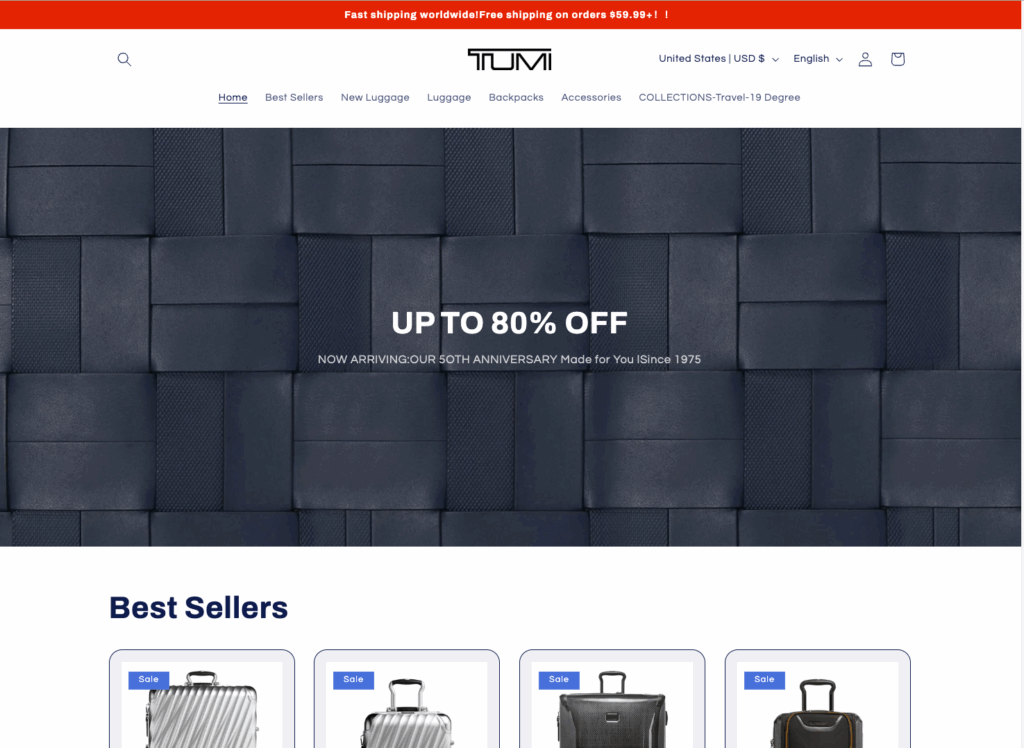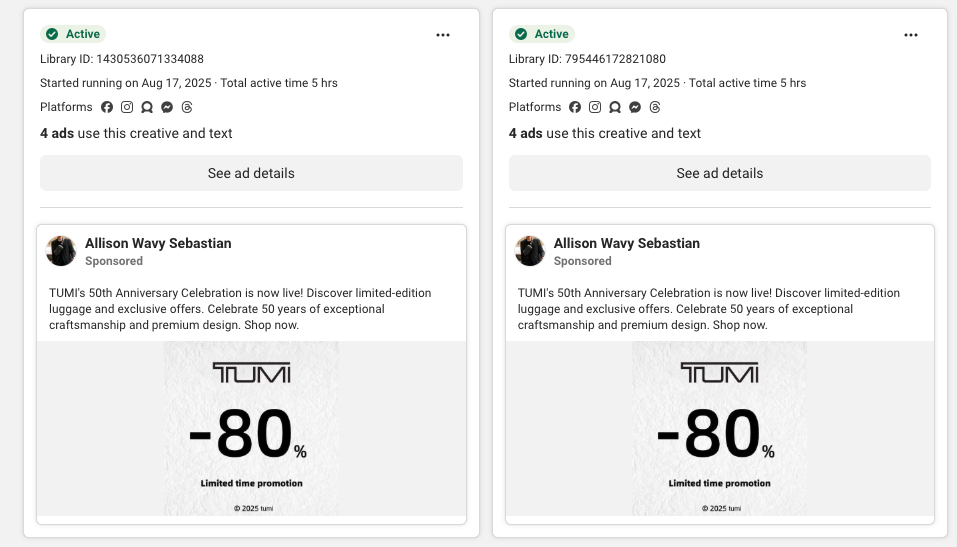Got caught is a scam

Scam Tracking: Lessons Learned
You’ve probably heard the saying: “If a deal looks too good to be true, it probably is.” On August 16, 2025, I was reminded of this the hard way.
A Facebook ad caught my eye—an “80% off anniversary sale” on TUMI products. I’m a big fan of TUMI, and of course, Facebook knows this. The ad pointed me to a site called luxtravelgear.shop. The website looked polished, checkout was handled by Shopify (a respected e-commerce platform), and in my excitement, I clicked through without looking too closely at the domain name.
First Red Flag: A Brand-New Website
When I mentioned the sale at work, a colleague warned me it might be a scam. He explained that one telltale sign is when the web domain is only a few days old—set up just to collect money and disappear.
So I went to ICANN Lookup to check the domain. The results showed:
Domain: luxtravelgear.shop
Created: 2025-08-13
Updated: 2025-08-13
Expiration: 2026-08-13
That meant the site was only three days old when I saw the ad. Definitely suspicious.
The ICANN record also listed a phone number with an Iceland country code (+354) and a Reykjavik mailing address. Searching online showed that the same number appeared in connection with questionable activity.
For reference:
Second Red Flag: Branding Mismatch
The website itself was branded as TUMI, not “luxtravelgear.shop.” Even the invoice listed “TUMI” as the seller, not the actual domain. This kind of mismatch between the site name and the brand being sold is another warning sign.
Third Red Flag: Terms & Conditions
I copied the site’s Terms & Conditions into ChatGPT for a quick assessment. Here were the findings:
- Business details missing: No legal company name, no physical address, no domain-based email.
- Refund policy absent: Links were placeholders.
- Jurisdiction issues: Governed by Italian law, offering little protection for U.S. buyers.
- Overly one-sided liability: Nearly all responsibility disclaimed.
In short, the T&Cs looked like a generic Shopify template that hadn’t been properly customized—a big indicator that the operation wasn’t legitimate.
Stopping the Payment
I immediately called Wells Fargo to ask if they could stop the pending payment. This step was critical: if the charge had fully posted, I would have been forced into a long dispute process (30 days to contact the seller, then 30 more for them to respond). That delay is exactly what scammers count on.
Fortunately, because I acted quickly, the charge was put on hold before it settled, and the dispute process was initiated right away.
A Moving Target
When I went back to Facebook to see if I could find the ad again, it was already gone. But within a day, a new site had appeared: ektransactions.shop—same setup, same branding style.
You can check for ads yourself at the Facebook Ads Library.
Key Takeaways
- Check the domain age: Use ICANN Lookup. If a store just launched days ago, be wary.
- Verify business details: Look for a real address, a company registration, and a professional contact email.
- Watch for branding mismatches: If the store name and the checkout/invoice don’t align, it’s a red flag.
- Act quickly on payments: If you realize you’ve been duped, contact your bank before the charge settles.
Disclaimer
This post is based on my personal experience. Sites like luxtravelgear.shop and ektransactions.shop may or may not be legitimate businesses. My assessment is that they displayed several red flags consistent with scam operations. I’d be glad to publish a correction if proven otherwise—for example, if someone really does receive $2,000 worth of TUMI gear for $200.
